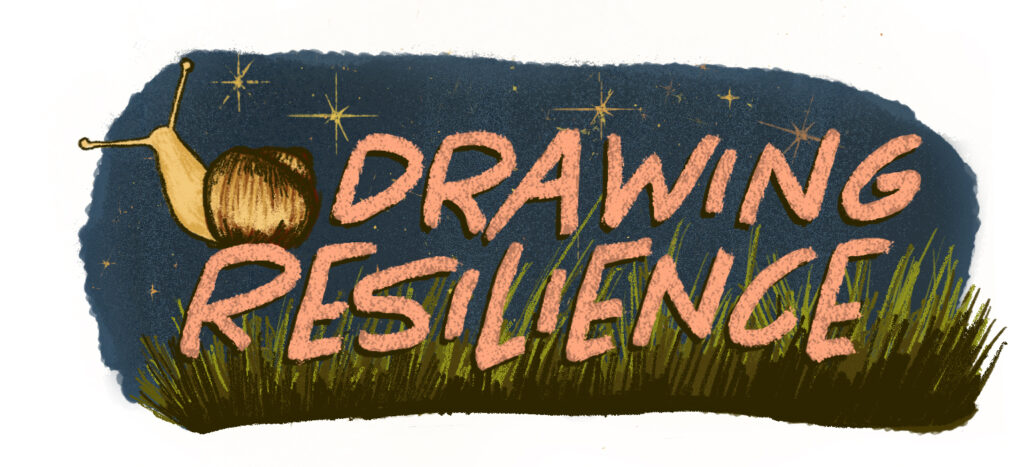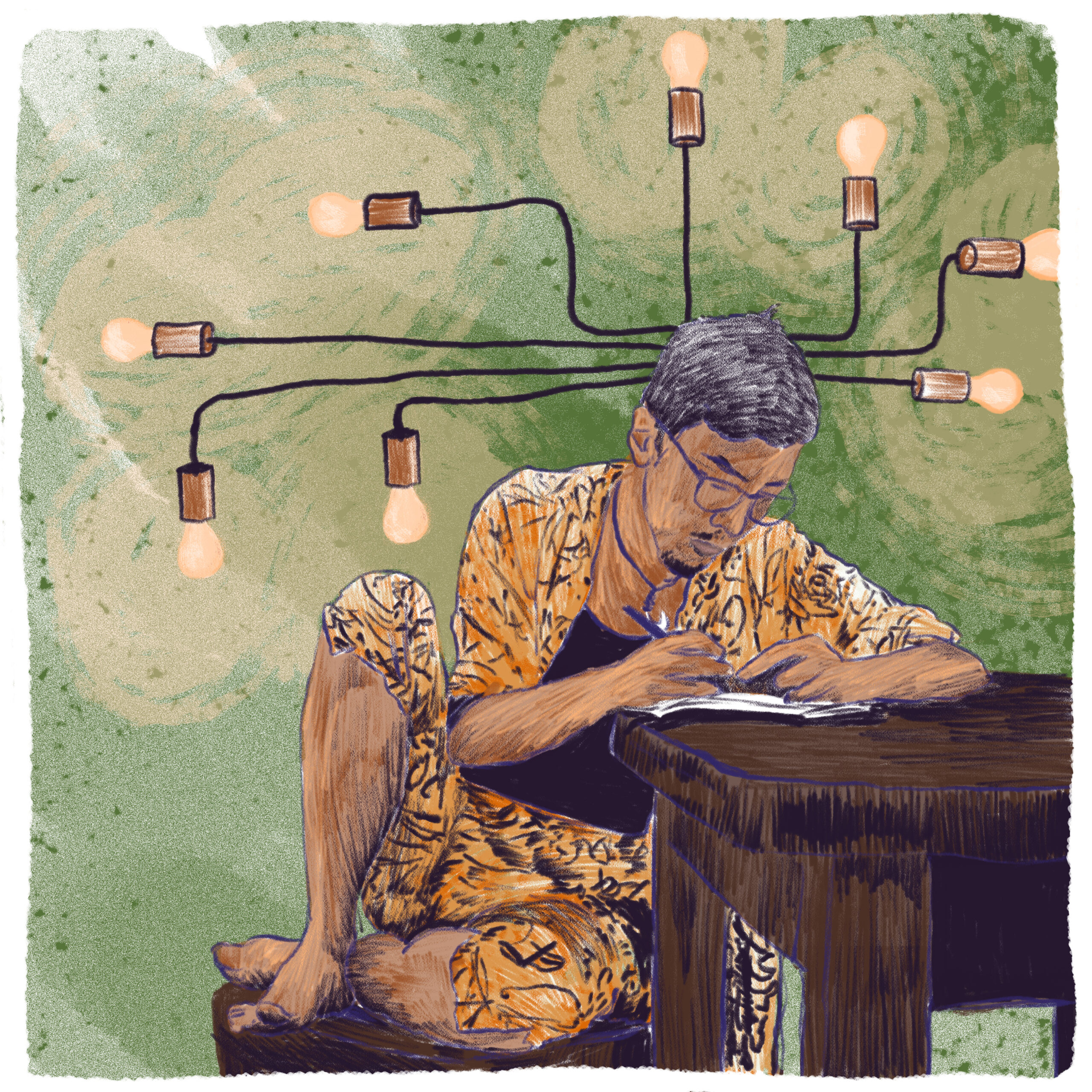
Drawing Resilience: Scott Shigeoka

Illustrations and interview by Nhatt Nichols
Scott Keoni Shigeoka (they/he) is a nationally recognized creative leader and curiosity expert. He has worked with some of the most impactful and influential social movements, leaders, organizations, and celebrities in the past 15 years.
I spoke with Scott while he was working on his forthcoming book Seek: How Curiosity Will Transform Your Life and Change the World (November 2023, Grand Central Publishing Balance / Hachette Book Group).
Scott is also a faculty member, currently at The University of Texas at Austin, teaching classes on curiosity, connection, healing and narrative change. You can find more of Scott’s accomplishments and work at https://scottshigeoka.com/.
Scott has deep roots in rural places; he is from a small town in Hawaii and now resides in another small town in the California Mojave Desert. I truly appreciate how much Scott gave me to think about during our chat, and I’m looking forward to spending a little time reframing who and what I think should be resilient.
What have you seen as being successful when you’ve had a project where you’re building community?
I think building community really starts with relationships, and strong relationships start with curiosity. Curiosity is really about understanding the people you might have known for many years, but who you can always see with intrigue and wonder (a tip for a healthy relationship or marriage!). It’s also about seeing those you don’t know in your community; being curious about who they are, their stories, and the beliefs that drive them.
Curiosity evokes a sense of connection, and frequent connection builds trust, a sense of safety, and understanding. That’s how relationships are built, and
relationships at scale are a community.
Do you think curiosity is a strong tool for resilience?
How are you all defining resilience?
I’ve been thinking of it in terms of food, natural disaster preparedness, and physical support, but I’ve also as having the emotional and mental capacity to help each other through genuinely difficult times, like all of the hardships caused by climate change.
I don’t like the idea of people having to be resilient. I think that we’re often told to be resilient, and that makes us miss what actually should be resilient, which are infrastructures and systems. When we ask people to be resilient we’re placing the burden on people to make up for the work that institutions and systems are not doing.
You were talking about climate and communities. Climate as a crisis is caused by the fossil fuel industry. It’s a small group of institutions that are digging up fuel from the ground for energy and releasing carbon dioxide.
Communities that are not the cause of the climate crisis are being told to be resilient. It puts the burden on them instead of on the very institutions that are exasperating the consequences.
Focusing on how to make people being resilient, without also focusing on infrastructure or systems, is a problematic and toxic framing.
I appreciate that, and I’ll think more about framing resilience appropriately. Is there a moment where you’ve seen curiosity change the way people relate to each other?
I think a big part of our inability to solve critical issues comes from our lack of desire to work together, especially with people who hold different viewpoints, ideologies, or identities. We’re pushing into factions and groups of people who seem like us, and we’re moving away from those who don’t.
A big part of our fracture comes from a lack of curiosity about people who are different from us. We assume, based on stereotypes or past experiences, that people who look like others who have hurt us are going to be just like those people.
As a queer person, I felt incuriosity and separation from Christians; I was spiritually harmed by a predominately Christian part of my community, and for many years actively held prejudice and discrimination.
When we take a step back we see this isn’t true; Christians aren’t all the same, there are queer clergy who are looking at sexuality and gender in new ways.
When we rely on stereotypes based on past experiences it can harm relationships with people trying to work alongside us.
When people feel dismissed, unheard, and like there is incuriosity towards them, they often perpetuate hurt. When I was a middle schooler the worst days weren’t when I was assaulted or bullied, they were when I wasn’t getting acknowledgment from anyone around me. That can drive you to a place of despair, depression, and suicide, or to a place of anger, rage, and homicide.
Our culture is a mother, and if she isn’t paying attention to all of her children, some are going to feel unloved and act out. We all need to be loved and supported, and if we’re not, then tragic outcomes happen.
Our culture is a mother, and if she isn’t paying attention to all of her children, some are going to feel unloved and act out. We all need to be loved and supported, and if we’re not, then tragic outcomes happen.
Drawing Resilience: Scott Shigeoka Tweet
Get this and other rural content in your inbox with the Rural Assembly newsletter.







